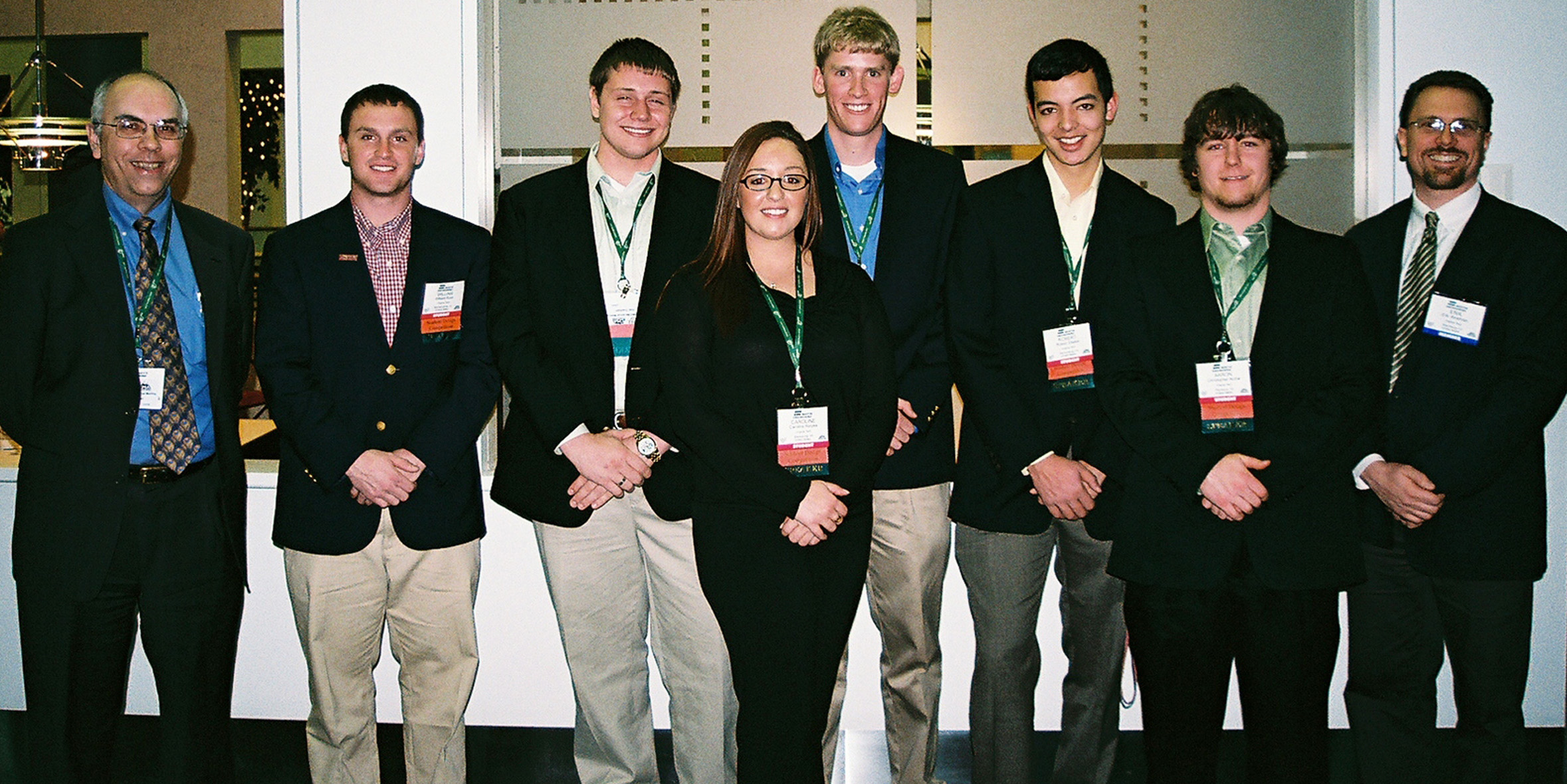Student team from College of Engineering wins national mining competition

A team of students from the College of Engineering at Virginia Tech recently won first place at the Society for Mining, Metallurgy and Exploration (SME) / National Stone, Sand, and Gravel Association (NSSGA) Student Design Competition. The team won a $2,000 cash prize, as well as products donated by InfoMine USA Inc.
A second team of students, also from Virginia Tech’s Department of Mining and Minerals Engineering, earned fifth place. The competition was part of SME’s 2009 Annual Meeting and Exhibit in Denver. It marks the second consecutive year that the College of Engineering placed two teams in the finals, as well as the second year in a row that Virginia Tech has captured the top spot at the competition.
“The event is very competitive and the judging very tough,” said Erik Westman, an mining and minerals engineering associate professor and the teams’ adviser. The Virginia Tech teams faced off against teams from the nation’s top mining engineering schools, including South Dakota School of Mines and Technology, the University of Reno-Nevada and the Missouri University of Science and Technology.
The competition is an academic event broken up into two phases. A judging panel comprised of aggregate industry professionals evaluates both phases of the event.
Phase one involves writing and submitting a comprehensive mine design based on real data. Submitted reports are judged by a group of industry professionals who choose the top six teams to participate in the final round held at the SME’s annual meeting. At the second-phase meeting, finalists are presented with an additional design problem to be solved within 48 hours. This result is then presented in an oral report to the judges and a larger audience at the SME meeting.
The first place team, “Old Dominion Mining,” consisted of
- Alek Duerksen, a senior from Waynesboro, Va., majoring in mining engineering;
- Andrew Storey, a senior from Richmond, Va., majoring in mining engineering;
- Aaron Noble, a senior from Lenoir City, Tenn., majoring in mining engineering;
- Caroline Relyea, a senior from Columbus, Ohio, majoring in mining engineering;
- Ricky Rose, a junior from Mechanicsville, Va., majoring in mining engineering; and
- Robert Stieber, a junior from Harrisonburg, Va., majoring in mining engineering.
The fifth place team, “Mischief Mining,” consisted of
- John Bowling, a senior from Linden, Va., majoring in mining engineering;
- Bridget Mead, a senior from Fairfax, Va., majoring in mining engineering;
- Holly Fitz, a senior from Richmond, Va., majoring in mining engineering;
- Nick Sprague, a senior from Blacksburg, Va., majoring in mining engineering;
- Dan Sadtler, a junior from Damascus, Md., majoring in mining engineering; and
- Scott Hutchins, a junior from Wirtz, Va., majoring in geosciences.
The Old Dominion Mining team said it won based on planning and anticipating possible problems. “We had a definite leg up on the competition when Phase II started,” said Duerksen, who recently was named Outstanding Senior for the College of Engineering. “Not only were we able to work efficiently and cover all the bases we wanted to, we actually got some sleep.”
In addition to the cash prize and equipment, the first-place team was invited that day to present a technical session to industry professionals, university faculty, and student peers attending the conference.
“I thought our team did an outstanding job,” said Greg Adel, mining and minerals engineering professor and interim head of the department, who also served as a team adviser in previous competitions. “I have been involved in this competition since its inception and it is no easy task to win, let alone win two years in a row. The schools involved are all very competitive and they continue to raise the bar each year.”
Student team members said the competition, though challenging, was a positive experience that enabled them to practice mining engineering as if they were on the job. “As students, we rarely have to work on something so open-ended and turn in a report knowing that there was no way we could have addressed everything we wanted to,” said Duerksen.
Since its inception in 2005, the student competition has grown from four teams to more than 15. Virginia Tech’s mining students have had strong success: They won second place in each of the first three years, and in 2008, two teams made the finals at the SME Annual Meeting in Salt Lake City, walking away with first and fourth places.




